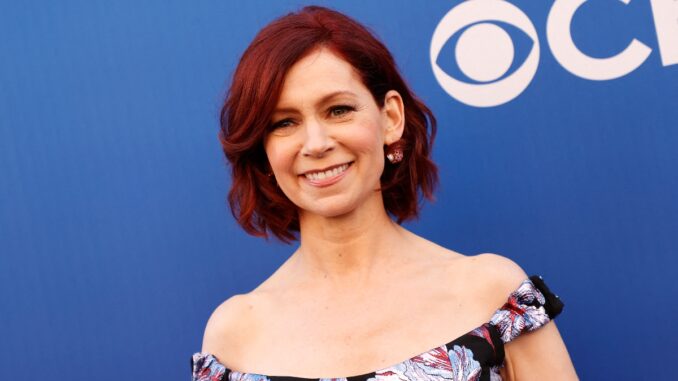
The Curious Case of Elsbeth’s Lane Switch: A Comedy of Genre and Strategy
In the often-predictable world of network television, where shows generally plant their flags firmly in either the drama or comedy camp, a recent announcement from CBS sent a delightful ripple through the industry: Elsbeth, the charmingly offbeat spin-off from The Good Wife and The Good Fight, has been submitted for Emmy consideration as a comedy series. This isn’t just a bureaucratic filing; it’s a declaration, an audacious lane switch that speaks volumes about the show itself, the fluidity of modern genre, and the strategic dance of awards season.
At its heart, the decision to position Elsbeth as a comedy is a profound acknowledgment of its titular character. Elsbeth Tascioni, played with an inimitable blend of wide-eyed wonder and razor-sharp intellect by Carrie Preston, is an epicurean delight. Her eccentricity isn’t a quirk; it’s her operating system. Transplanted from the legal battlegrounds of Chicago to the bustling, intricate world of New York City murder investigations, Elsbeth approaches each crime scene and suspect with a disarming blend of naiveté and uncanny perceptiveness. Her social awkwardness, her penchant for noticing the trivial detail that everyone else dismisses, her internal monologues that frequently manifest as audible musings – these are not merely dramatic devices. They are intrinsically, irrepressibly funny. She’s a bull in a ceramic shop, but the shop owner ends up charmed, and the broken pieces mysteriously reform into a clearer picture. The humor stems from her genuine goodness colliding with cynical reality, her unconventional methods clashing with the staid professionalism of the NYPD, and her uncanny ability to disarm suspects with a well-meaning but utterly bizarre observation.
Yet, Elsbeth is unequivocally a procedural. Each episode presents a murder, a roster of suspects, and a painstaking investigation culminating in the perpetrator’s unmasking. This is the very definition of a police drama. However, the show subverts this framework in crucial ways. Eschewing the traditional “whodunit,” Elsbeth often adopts the “howcatchem” structure, revealing the killer to the audience early on (a la Columbo). The tension, then, isn’t in guessing the culprit, but in witnessing Elsbeth’s idiosyncratic journey to connect the dots. This shift in focus from grim suspense to intellectual puzzle-solving, viewed through Elsbeth’s uniquely sunny yet incisive lens, significantly lightens the narrative load. The crimes themselves are serious, but the tone of their unraveling, infused with Elsbeth’s relentless optimism and often unexpected observations, leans heavily into the realm of comedic storytelling. It’s a drama wrapped in a meticulously tailored, brightly patterned comedic suit.
The CBS submission, however, is not purely an artistic statement; it’s also a calculated gambit in the cutthroat battlefield of Emmy nominations. The line between drama and comedy has become increasingly blurred in recent years, giving rise to the pervasive “dramedy” – a hybrid genre often exemplified by shows like Fleabag, Barry, or Ted Lasso. These shows possess significant dramatic stakes but are undeniably driven by comedic performances and narrative structures. Elsbeth clearly fits this mold. But Emmy categories are rigid. By submitting as a comedy, CBS might be strategically eyeing a less congested field. The drama categories are historically packed with heavyweights – prestige dramas vying for recognition in a category that often rewards gravitas and intensity. Comedy, while still competitive, might offer Elsbeth a clearer path to stand out, allowing its distinctive voice and Elsbeth’s captivating performance to shine without being overshadowed by more traditionally “serious” fare. It’s a pragmatic recognition that while the show has dramatic elements, its unique flavor might be best appreciated by voters seeking clever, character-driven humor.
This strategic maneuver, however, is merely a symptom of a larger, fascinating trend in television: the collapse and reconstruction of genre boundaries. Elsbeth‘s “lane switch” is illustrative of how creators and networks are increasingly playing with form, refusing to be confined by outdated classifications. It acknowledges that audiences are sophisticated enough to embrace shows that offer both laughter and genuine stakes, that a murder mystery can be both intriguing and genuinely funny. It celebrates the idea that a character’s inherent comedic nature can drive a narrative, even when that narrative deals with the darkest aspects of humanity.
In the end, CBS’s decision to submit Elsbeth as a comedy for the Emmys is more than just an administrative act. It’s an affirmation of the show’s unique identity, a nod to the compelling, often hilarious, brilliance of Elsbeth Tascioni herself, and a savvy move within the awards ecosystem. More broadly, it serves as a vibrant illustration of how television continues to evolve, pushing the boundaries of what we expect from a “drama” or a “comedy,” reminding us that the most compelling stories often reside in the delightfully unexpected lanes in between.
